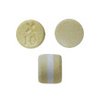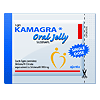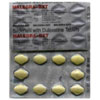You should not use Uroxatral if you are allergic to alfuzosin, if you have severe liver disease, or if you are also using ketoconazole (Nizoral), itraconazole (Sporanox), or ritonavir (Norvir). Do not take Uroxatral with other similar medicines such as doxazosin (Cardura), prazosin (Minipress), silodosin (Rapaflo), tamsulosin (Flomax), or terazosin (Hytrin).
Uroxatral may cause dizziness or fainting. Be careful if you drive or do anything that requires you to be alert. Avoid standing for long periods of time or becoming overheated during exercise and in hot weather. Avoid getting up too fast from a sitting or lying position, or you may feel dizzy.
Uroxatral can affect your pupils during cataract surgery. Tell your eye surgeon ahead of time that you are using this medication. Do not stop using Uroxatral before surgery unless your surgeon tells you to.
There are many other drugs that can interact with Uroxatral. Tell your doctor about all medications you use.
Before taking Uroxatral
Do not use Uroxatral if you are allergic to alfuzosin, or if you have:
severe liver disease;
if you are also taking similar medicines such as doxazosin (Cardura), prazosin (Minipress), silodosin (Rapaflo), tamsulosin (Flomax), or terazosin (Hytrin); or
if you are also using ketoconazole (Nizoral), itraconazole (Sporanox), or ritonavir (Norvir).
If you have any of these other conditions, you may need an Uroxatral dose adjustment or special tests:
prostate cancer;
liver disease;
kidney disease;
a personal or family history of Long QT syndrome;
angina (chest pain);
coronary artery disease (hardened arteries);
a history of low blood pressure (even when caused by taking medications); or
if you are taking certain medicines to treat HIV or AIDS.
Uroxatral can affect your pupils during cataract surgery. Tell your eye surgeon ahead of time that you are using this medication. Do not stop using Uroxatral before surgery unless your surgeon tells you to.
Although this medication is not for use in women, Uroxatral is not expected to harm an unborn baby. If you are a woman using this medication, tell your doctor if you are pregnant or breast-feeding. Uroxatral is not for use in children.
Important safety information:
Uroxatral may impair your thinking or reactions. Be careful if you drive or do anything that requires you to be alert.
To prevent dizziness, avoid standing for long periods of time or becoming overheated during exercise and in hot weather.
Avoid getting up too fast from a sitting or lying position, or you may feel dizzy. Get up slowly and steady yourself to prevent a fall. Drinking alcohol can increase certain side effects of Uroxatral.
Many drugs can interact with Uroxatral. Below is just a partial list. Tell your doctor if you are using:
atenolol (Tenormin);
arsenic trioxide (Trisenox);
cimetidine (Tagamet);
conivaptan (Vaprisol);
diltiazem (Cardizem CD, Cartia XT, Tiazac);
droperidol (Inapsine);
enoxacin (Penetrex);
imatinib (Gleevec);
isoniazid (for treating tuberculosis);
an antibiotic such as clarithromycin (Biaxin), dalfopristin/quinupristin (Synercid), erythromycin (E.E.S., EryPed, Ery-Tab, Erythrocin), levofloxacin (Levaquin), moxifloxacin (Avelox), pentamidine (NebuPent, Pentam); or telithromycin (Ketek);
an antidepressant such as amitriptylline (Elavil, Vanatrip), clomipramine (Anafranil), desipramine (Norpramin), or nefazodone;
an antifungal medication such as clotrimazole (Mycelex Troche) o voriconazole (Vfend);
anti-malaria medications such as chloroquine (Arelan) or mefloquine (Lariam);
a nitrate heart medication, such as nitroglycerin (Nitrostat, Nitrolingual, Nitro-Dur, Nitro-Bid, and others), isosorbide dinitrate (Dilatrate-SR, Isordil, Sorbitrate), or isosorbide mononitrate (Imdur, ISMO, Monoket);
heart or blood pressure medication such as diltiazem (Cartia, Cardizem), felodipine (Plendil), nifedipine (Nifedical, Procardia), verapamil (Calan, Covera, Isoptin, Verelan), and others;
heart rhythm medicine such as amiodarone (Cordarone, Pacerone), dofetilide (Tikosyn), disopyramide (Norpace), ibutilide (Corvert), procainamide (Pronestyl), propafenone (Rythmol), quinidine (Quin-G), or sotalol (Betapace);
HIV/AIDS medicine such as atazanavir (Reyataz), delavirdine (Rescriptor), fosamprenavir (Lexiva), indinavir (Crixivan), nelfinavir (Viracept), saquinavir (Invirase), or ritonavir (Norvir);
medicine to prevent or treat nausea and vomiting, such as dolasetron (Anzemet) or ondansetron (Zofran);
medicines to treat psychiatric disorders, such as chlorpromazine (Thorazine), clozapine (FazaClo, Clozaril), haloperidol (Haldol), pimozide (Orap), thioridazine (Mellaril), or ziprasidone (Geodon);
migraine headache medicine such as sumatriptan (Imitrex) or zolmitriptan (Zomig); or
narcotic medication such as methadone (Dolophine, Methadose).
This list is not complete and there are many other drugs that can interact with Uroxatral. Tell your doctor about all medications you use. This includes prescription, over-the-counter, vitamin, and herbal products. Do not start a new medication without telling your doctor. Keep a list of all your medicines and show it to any healthcare provider who treats you.







